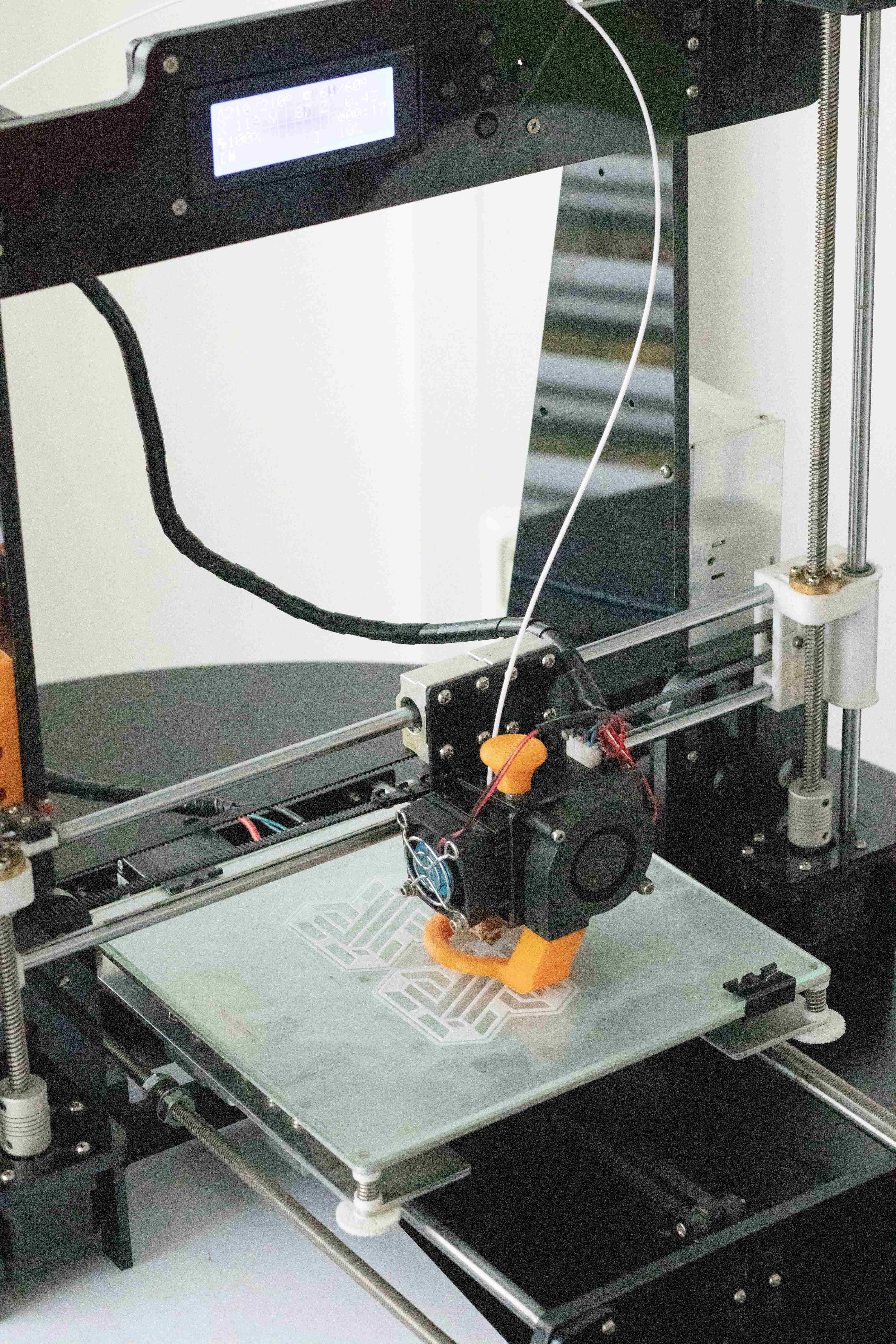FOUNDATIONS OF 3D PRINTING: FROM CONCEPT TO CREATION

FOUNDATIONS OF 3D PRINTING: FROM CONCEPT TO CREATION
Explore 3D Printing:
Welcome to the explore 3D printing program at Kajal Innovation and Technical Solutions (KITS)! This course is designed to explore the world of 3D printing right from its basics. 3D printing, also known as additive manufacturing, is a revolutionary technology that creates three-dimensional objects layer by layer from digital models. It involves the deposition of material, such as plastic, metal, or resin, in a controlled manner to build up the final object. This technology offers numerous advantages, including the ability to produce complex and customized designs, rapid prototyping, reduced material waste, and decentralized manufacturing. 3D printing has applications in various industries, ranging from healthcare and aerospace to automotive and consumer goods. As the technology continues to evolve, it holds the potential to transform traditional manufacturing processes and spur innovation in product development and design.
Benefits:
Enrolling in a 3D printing course offers several benefits at KITS. Participants gain hands-on experience with the technology, learning to create three-dimensional objects from digital models. The courses typically cover various 3D printing techniques, materials, and applications, providing a comprehensive understanding of the technology. Participants also develop skills in designing for 3D printing, allowing them to bring their creative ideas to life. Additionally, these courses often address industry-specific applications, preparing individuals for diverse fields such as engineering, product design, and manufacturing. Overall, a 3D printing course equips participants with practical knowledge and skills to navigate the rapidly evolving world of additive manufacturing.
Eligibility:
Eligibility criteria for 3D printing courses can vary, but generally, these courses are open to individuals with a background or interest in fields such as engineering, design, manufacturing, or related disciplines. Many introductory courses have no strict prerequisites, making them accessible to beginners. Some advanced or specialized courses may require prior knowledge in areas like CAD (Computer-Aided Design) software. Whether for hobbyists, students, or professionals, 3D printing courses cater to a broad audience. It's advisable to check specific course details and prerequisites before enrolling to ensure alignment with individual skill levels and educational backgrounds.
Course Highlights:
Hands-on Learning: Courses often provide practical, hands-on experience, allowing participants to operate 3D printers and create their own printed objects.
Comprehensive Curriculum: The curriculum covers various aspects of 3D printing, including techniques, materials, design principles, and applications across different industries.
CAD Software Skills: Participants often acquire proficiency in Computer-Aided Design (CAD) software, a fundamental skill for creating 3D models.
Industry-Relevant Content: Many courses incorporate real-world applications, addressing industry-specific needs and trends, preparing participants for practical challenges.
Innovation and Creativity: Courses encourage creativity by teaching participants how to translate their ideas into tangible 3D-printed prototypes, fostering innovation.
Networking Opportunities: Participants may have the chance to connect with instructors, experts, and fellow learners, expanding their professional network within the 3D printing community.
Flexibility: Some courses offer flexible formats, allowing individuals to learn at their own pace through online modules or in-person sessions, making education more accessible.
Project-Based Learning: Courses often include projects where participants apply their knowledge to solve real-world problems, reinforcing practical skills.
Certification: Successful completion of a 3D printing course may result in a certification, enhancing participants' credentials in the job market or industry.
These highlights contribute to a well-rounded educational experience that empowers individuals to harness the full potential of 3D printing technology, this course is designed for students from different age groups. We have designed two courses for students from different age group (3rd-5th standard 7 day course and a 15 day course higher age students). Contact us to know more about the course in detail for your kids.
Curriculum:
Day 1-2: Understanding 3D Printing:
- Introduction to 3D printing technology.
- History and evolution of 3D printing.
- Basic terminology (filament, extruder, nozzle, etc.).
- Overview of different 3D printing processes (FDM, SLA, SLS).
Day 3-4: Safety and Maintenance:
- Safety guidelines for 3D printing.
- Proper usage of 3D printers.
- Basic maintenance tips.
- Troubleshooting common issues.
Day 5-6: 3D Printing Software:
- Introduction to 3D modeling software (TinkerCAD, Fusion 360).
- Basics of creating 3D models.
- Exporting files for 3D printing.
- Overview of slicing software (Cura, PrusaSlicer).
Day 7-8: Designing in TinkerCAD:
- Hands-on session using TinkerCAD.
- Creating simple 3D models.
- Combining and modifying shapes.
- Designing a basic keychain.
Day 9-10: Intermediate Design with Fusion 360:
- Introduction to Fusion 360.
- Creating more complex 3D models.
- Understanding sketches, extrusions, and joints.
- Designing a custom pencil holder.
Day 11-12: Slicing and Printing:
- Slicing models using Cura or PrusaSlicer.
- Loading files onto 3D printers.
- Printing basic shapes and designs.
- Fine-tuning print settings for quality.
Day 13-14: Project Time:
- Students work on individual or group projects.
- Mentors provide guidance and assistance.
- Troubleshooting and refining designs.
Day 15: Project Presentation and Conclusion:
- Students present their completed projects.
- Peer feedback and discussion.
- Recap of key learnings and takeaways.
- Distribution of participation certificates.
Get in Touch!
We Would like to hear from you. Fill Free for any Query